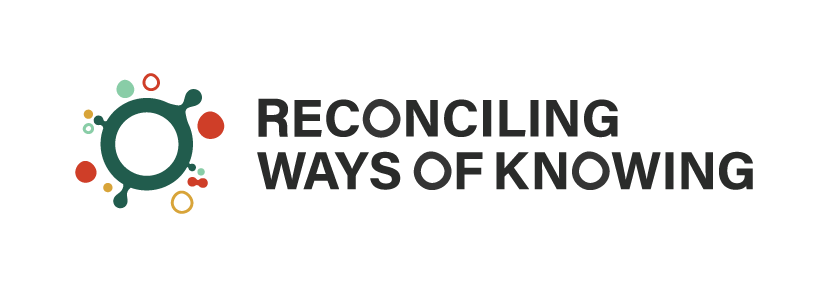Braiding Ways of Knowing
This dialogue originally aired on Thursday, September 24
Known for her award-winning books Gathering Moss: A Natural & Cultural History of Mosses and Braiding Sweetgrass: Indigenous Wisdom, Scientific Knowledge and the Teaching of Plants, amongst many other ways in which she has had an impact as a teacher, researcher, and writer, Dr. Robin Wall Kimmerer spoke in dialogue with friend, colleague, renowned ethnobotanist and moderator Dr. Nancy Turner on the theme of Braiding Ways of Knowing.
Drs. Wall Kimmerer and Turner discussed how Dr. Wall Kimmerer had concluded that Indigenous and scientific ways of knowing could be braided together in her work on the role of traditional ecological knowledge in ecological restoration and the ecology of mosses. Fellow Reconciling Ways of Knowing project founders Miles Richardson, O.C., Dr. David Suzuki, and Elder Dr. Dave Courchene, Jr. joined Dr. Turner in the dialogue with Dr. Wall Kimmerer to connect her findings and reflections from her work to the objective of the Reconciling Ways of Knowing project to facilitate pathways for building better relationships across ways of knowing and for creating better stewardship outcomes together. And finally, participants asked Dr. Wall Kimmerer or any of the project founders questions about how they can apply the considerations from the discussion on braiding ways of knowing to their work and engagement in community.
Speaker biographies
Dr. Robin Wall Kimmerer
Robin Wall Kimmerer is a mother, plant ecologist, writer and SUNY Distinguished Teaching Professor at the SUNY College of Environmental Science and Forestry in Syracuse, New York. She serves as the founding Director of the Center for Native Peoples and the Environment whose mission is to create programs which draw on the wisdom of both indigenous and scientific knowledge for our shared goals of sustainability. Her research interests include the role of traditional ecological knowledge in ecological restoration and the ecology of mosses. In collaboration with tribal partners, she and her students have an active research program in the ecology and restoration of plants of cultural significance to Native people. She is active in efforts to broaden access to environmental science education for Native students, and to create new models for integration of Indigenous philosophy and scientific tools on behalf of land and culture. She is engaged in programs which introduce the benefits of traditional ecological knowledge to the scientific community, in a way that respects and protects Indigenous knowledge. She is the co-founder and past president of the Traditional Ecological Knowledge section of the Ecological Society of America. Dr. Kimmerer serves as a Senior Fellow for the Center for Nature and Humans. Of European and Anishinaabe ancestry, Robin is an enrolled member of the Citizen Potawatomi Nation. As a writer and a scientist, her interests in restoration include not only restoration of ecological communities, but restoration of our relationships to land.
Dr. Nancy Turner
Dr. Nancy Turner is an ethnobotanist and ethnoecologist whose research integrates the fields of botany and ecology with anthropology, geography and linguistics, amongst others. She is interested in the traditional knowledge systems and land and resource management systems of Indigenous Peoples, particularly in western Canada. She has worked with Indigenous Elders and cultural specialists in northwestern North America for over 50 years, collaborating with Indigenous communities to help document, retain and promote their knowledge of plants and habitats, including foods, materials and medicines, as well as language and vocabulary relating to plants and environments, and the roles of plants and animals in narratives, ceremonies, and belief systems. Distinguished Emeritus Professor in the School of Environmental Studies at the University of Victoria, Dr. Turner has authored, co-authored or co-edited over 30 books and over 150 book chapters and peer-reviewed papers, and numerous other publications, both popular and academic. Her 2014 two-volume book, Ancient Pathways, Ancestral Knowledge: Ethnobotany and Ecological Wisdom of Indigenous Peoples of Northwestern North America (McGill-Queen’s University Press), represents an integration of her long term research. Her most recent book, published this year, is an edited volume, Plants, People, and Places. The Roles of Ethnobotany and ethnoecology in Indigenous Peoples’ Land Rights in Canada and Beyond. She is a member of the Order of Canada, and Order of British Columbia.
